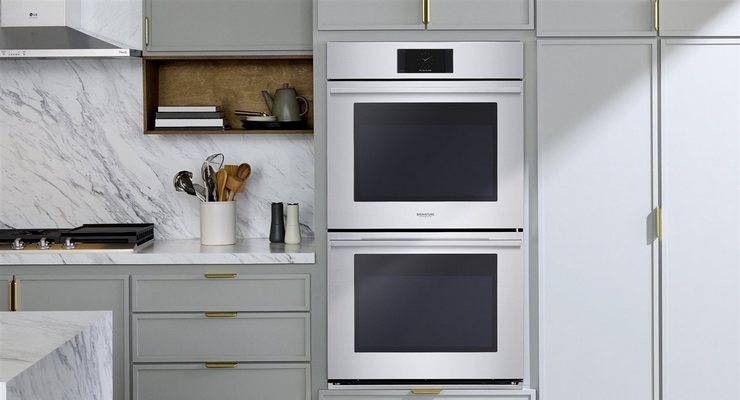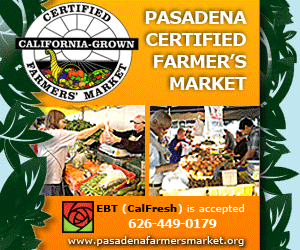
The kitchen is the heart of the home. It’s where you gather with loved ones for meals and conversations and make memories and traditions. To achieve these connections (while still making delicious meals), warmth and welcome are key.
If you’re worried about being out of step with the modern and minimalist design trends of the past few years, consider this: experts have seen a desire among clients for cozier and warmer designs.
Are you interested in changing your kitchen and staying in style? Here are four 2025 upcoming trends from design experts across the country who can help you step into the new year on trend.
1. Luxury through personalization
While homeowners are seeking a luxury feel for their kitchens, they don’t want them to be exactly like that of their neighbors, friends and family members. Instead, there is a desire among clients for personalization while still maintaining a luxe style.
“I am seeing a shift toward extremely personal customization,” said Jennifer Hutton, Creative Director and Principal Designer at Grau Design Studio. “That’s anything from bespoke storage options to specialized cabinet interiors to an emphasis on personal hobbies like creating craft cocktails, baking or even using certain types of cooking equipment.”
Andrea Harvey, founder of ASH Interiors and Design, has also noted that homeowners want to add personal lifestyle details to their kitchen design.
“As always, luxury is about personalization,” said Harvey. “Luxury clients want their spaces to be uniquely theirs. They want details that are all about how they live. They would prefer to be ‘the only one’ than feel they are copying their neighbor or friend.”
2. A return to color and warmth
Gone are the days of bright whites and cold neutrals. More and more clients are seeking to infuse color and warmth into their kitchen space.
“No more gray!” said Ariana Lovato, Founder + Principal Designer of Honeycomb Home Design. “Warm tones and oak finishes will still prevail next year, but people are not shying away from color when it comes to an island or perimeter cabinetry.”
Hutton has also had clients ask for a darker, warmer aesthetic with textural and colorful interest.
“I see luxury kitchen trends taking a turn to a deeper, moodier style, a far cry from the bright white, pristine kitchens from a few years ago,” said Hutton. “My clients are looking for unique marbles, lots of texture, organic materials and rich colors.”
3. Multiple zones
Recent home kitchen designs have mimicked the style and function of professional kitchens that have all you need in one place. However, homes are already departing from this modern trend.
“We anticipate our luxury clients’ desire for ‘multiple zones’ to continue to strongly impact 2025 kitchen design,” said Linda Engler, founder of Engler Studio. “By multiple zones, I mean specific function areas beyond a primary kitchen: coffee and beverage stations, prep kitchens, sculleries and baking centers.”
Engler goes on to say that the multiple-zone approach uses a variation of materials and finishes to visually distinguish these stations from the primary kitchen. Because of these zones, designers and clients should expect an increase in appliances, as each zone will require its own package.
Another aspect of multiple zones is that homeowners are rediscovering the kitchen as a gathering place.
“It’s an exciting time in kitchen design because we’re starting to see a shift from the super sterile modern kitchen,” said Lovato. “Clients want islands that have wrap-around seating for casual conversations and built-in seating options like a nook or a custom banquette attached to the back of an island.”
4. Transitional design
Are you stuck between designing a modern or traditional kitchen? You can have the best of both worlds by aiming for a transitional design aesthetic.
The term “transitional design” can be difficult to nail down, but you can generally think of it as a style that incorporates modern elements like clean, sleek lines with traditional details that are homey and welcoming.
“I view transitional design as the bridge that connects traditional and modern,” said Engler. “It’s the middle ground between two extremes.”
A simple yet effective way to combine modern and traditional kitchen design is through careful hardware and appliance choices.
“Things like faucet style, hardware and light fixtures are examples of elements that can read as transitional and can be switched out over time if needed,” said Hutton. “Appliance style also plays a role here. Very professional, grand pieces tone down the modern style and add an ‘old school’ flair which can neutralize the ultramodern aesthetic.”
Appliances from luxury brand Signature Kitchen Suite’s new Transitional Series are perfect for homeowners seeking clean lines with timeless charm. The series includes wall ovens, induction cooktops, insert hoods, traditional and undercabinet refrigerators, dishwashers and built-in wine columns.
These panel-ready units feature satin stainless steel panel and handle kits as well as leading-edge True to Food technology. Not only do they look good, but they allow home chefs to show others their passion for the culinary arts.
Opening your home’s heart to style and comfort
Using these four trends, you can say goodbye to a purely clean and functional aesthetic and hello to a cozy kitchen you and your loved ones will want to spend time in. To learn about more design trends and how you can achieve them in the new year, visit SignatureKitchenSuite.com.








